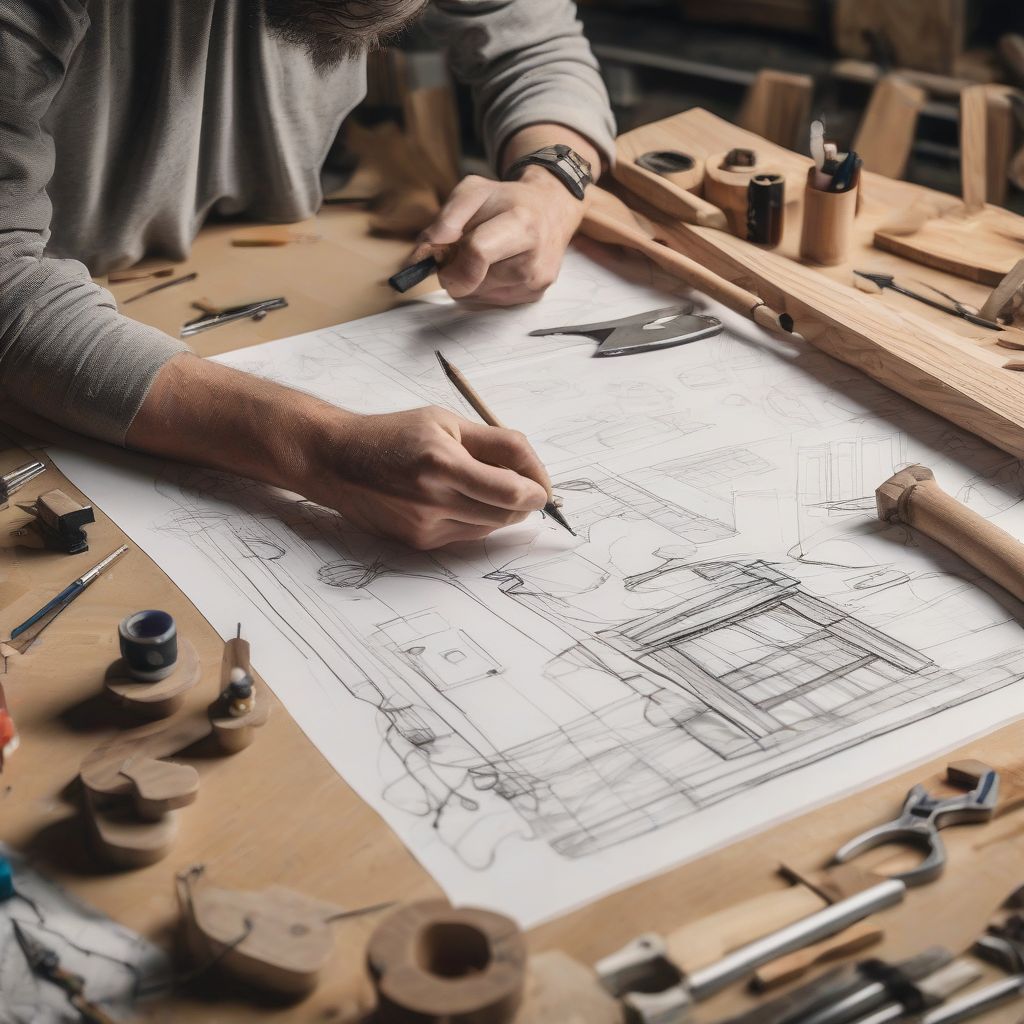Have you ever walked into a furniture store, fallen in love with a piece, only to balk at the price tag? Or perhaps you have a very specific vision for a piece that just doesn’t seem to exist in the ready-made world? Building your own custom furniture can be incredibly rewarding, saving you money and allowing you to create exactly what you envision. With the right DIY techniques and a bit of patience, you can transform raw materials into stunning, functional pieces that reflect your unique style and needs. This guide will provide you with the expert knowledge you need to embark on your furniture-building journey.
Planning Your Project: The Foundation of Success
Before you even pick up a saw, meticulous planning is crucial. Just like a nutritional plan sets you up for healthy eating, a well-thought-out plan is the cornerstone of a successful furniture project.
Defining Your Needs and Vision
Start by clearly defining the purpose of your furniture piece. What function will it serve? Where will it be placed? Consider the dimensions, style, and overall aesthetic you desire. Browse magazines, online platforms like Pinterest, and furniture showrooms for inspiration. Create sketches or use online design tools to visualize your finished product.
Material Selection: Choosing the Right Ingredients
Just as choosing wholesome ingredients is key to a healthy diet, selecting the right materials is crucial for furniture durability and aesthetics. Common choices include hardwood (like oak, maple, or cherry), softwood (like pine or fir), plywood, and MDF. Consider the material’s strength, workability, and cost. For beginners, softwoods like pine are easier to work with.
Gathering Tools and Equipment: Equipping Your Workshop
Having the right tools is essential. Invest in high-quality essentials like a circular saw, jigsaw, drill, measuring tape, and safety equipment. Borrowing or renting specialized tools can be a cost-effective option.
 Custom Furniture Design
Custom Furniture Design
Building Your Furniture: From Concept to Creation
Now comes the exciting part: bringing your vision to life. This stage requires precision, patience, and attention to detail.
Cutting and Shaping: Precision is Key
Following your design plans, carefully cut the wood pieces to the required dimensions. Use the appropriate saw for each cut – a circular saw for straight cuts, a jigsaw for curved cuts. Double-check measurements to ensure accuracy.
Assembling the Pieces: The Art of Joinery
Joinery is the heart of furniture construction. Various joinery techniques, like dowel joints, mortise and tenon joints, and pocket hole joints, provide strength and stability. Choose the method that best suits your skill level and the demands of your project. Clamps are essential for holding pieces together while the glue dries. As a renowned woodworker once said, “A well-executed joint is a testament to the craftsman’s skill.”
Sanding and Finishing: The Final Touches
Once the piece is assembled, sanding smooths the surfaces and prepares them for finishing. Start with coarser grit sandpaper and gradually move to finer grits for a polished finish. Apply a stain or paint to enhance the wood’s natural beauty or achieve a specific color. A protective topcoat adds durability and resistance to wear and tear.
Advanced DIY Techniques: Elevating Your Craftsmanship
As you gain experience, explore advanced techniques to create more complex and refined pieces.
Wood Bending: Shaping Curves and Contours
Wood bending allows you to create elegant curves and organic shapes. Techniques like steam bending and lamination bending open up a world of design possibilities.
Inlay and Marquetry: Adding Artistic Flair
Inlay and marquetry involve embedding contrasting materials, like wood, metal, or shell, into the surface of your furniture to create intricate patterns and designs. This technique adds a touch of artistry and personalization to your creations.
Veneering: A Thin Layer of Elegance
Veneering involves applying a thin layer of decorative wood to a less expensive substrate. This technique allows you to achieve the look of high-end wood at a fraction of the cost.
 Custom Furniture Finishing Touches
Custom Furniture Finishing Touches
Conclusion: Enjoying the Fruits of Your Labor
Building custom furniture is a journey of creativity, skill development, and personal expression. By following these expert DIY techniques and investing time and effort, you can transform raw materials into beautiful, functional pieces that will enhance your home for years to come. Remember, like any skill, practice makes perfect. Start with simpler projects and gradually work your way up to more complex designs. Share your creations with friends and family, seek feedback, and continue learning. The satisfaction of building something with your own hands is truly rewarding. Now, go forth and create! What custom furniture piece will you build first? Share your ideas and questions in the comments below. We’d love to hear from you!



